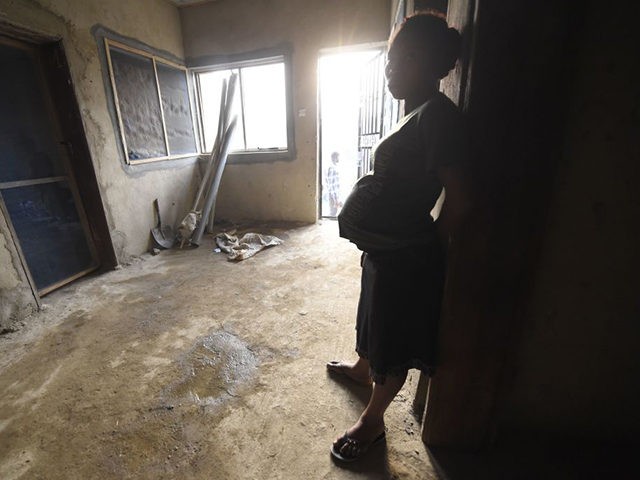A study released on Wednesday found that as many as one in three women suffer abuse during childbirth in Nigeria, Ghana, Myanmar, and Guinea.
The World Health Organization (WHO)-led study, published in The Lancet medical journal, is entitled “How women are treated during facility-based childbirth in four countries: a cross-sectional study with labour observations and community-based surveys.”
In its summary, authors explain that the goal was to “report results from a cross-sectional study in four low-income and middle-income countries” as part of an effort to “develop and implement evidence-informed, validated tools to measure mistreatment during childbirth.”
Of the 2,016 women who participated in the study, 838 (42 percent) were subjected to “physical or verbal abuse, stigma or discrimination.” Another 14 percent were physically abused, “most commonly being slapped, hit or punched.” In extreme cases, abuses included non-consensual and even forcible medical procedures, from vaginal examinations to episiotomies and caesarean sections.
The study consulted 2,672 women after childbirth and the rate of abuse was roughly equivalent to what the researchers observed. Younger, less-educated women were most at risk of abuse overall.
The authors hope that these revelations will be “used to inform policies and programmes to ensure that all women have positive pregnancy and childbirth experiences,” with the support of “empowered healthcare providers within well-functioning health systems.”
According to the WHO, millions of preventable deaths occur annually around the world, outside of the states mentioned above:
Of the more than 130 million births occurring each year, an estimated 303 000 result in the mother’s death, 2.6 million in stillbirth, and another 2.7 million in a newborn death within the first 28 days of birth. The majority of these deaths occur in low-resource settings and most could be prevented.
The study recommends numerous measures that could be used to address these widespread issues. First, targeted training that addresses “communication and consent,” followed by measures to increase patient privacy, and the ability to have a trusted companion present.
“Addressing these inequalities and promoting respectful maternity care for all are key to improve health equity and quality,” the study concludes, warning that “action is urgently needed to enhance the provision of respectful maternity care worldwide.”
This is just one more recent analysis of medical abuse during childbirth in the region. Harvard’s “Maternal Health Task Force” reviewed the findings of PLOS One and Elsevier studies in 2017, highlighting a 98 percent rate of abuse reported in Nigeria and similarly poor countries.

COMMENTS
Please let us know if you're having issues with commenting.